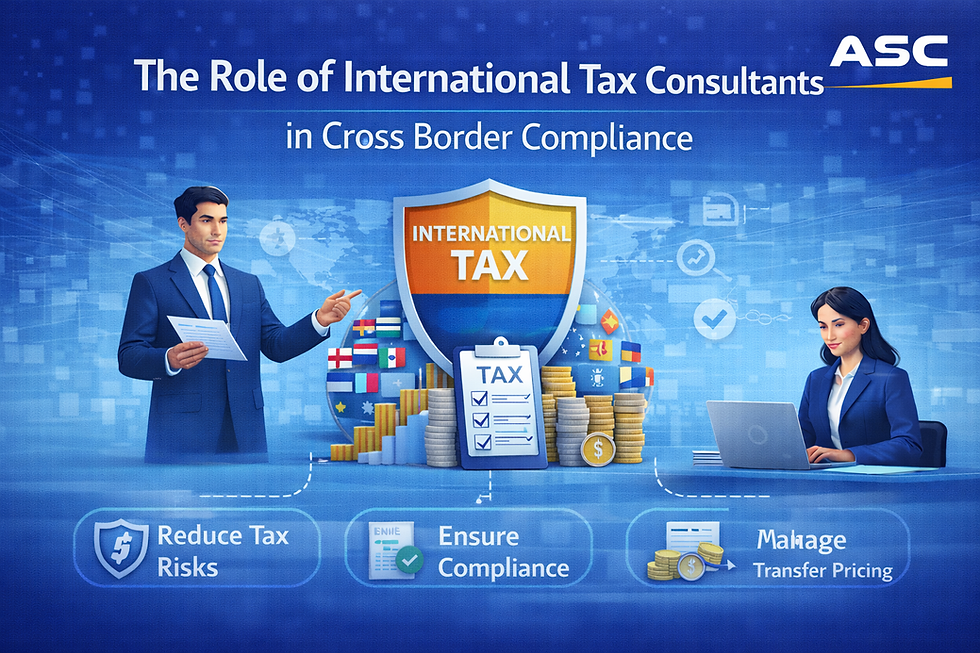EPR Registration for Plastic Waste Management: Step-by-Step Guide to CPCB Approval
- ASC Group
- Nov 12, 2025
- 3 min read
In India’s evolving environmental landscape, businesses that manufacture, import or brand goods packaged in plastic must comply with the Extended Producer Responsibility (EPR) regulations under the Central Pollution Control Board (CPCB). This means registering on the EPR portal, filing returns, and ensuring proper collection and recycling of waste. Whether it’s plastic packaging or e-waste, failure to register or comply can result in significant penalties and operational barriers. This blog walks you through a clear, practical step-by-step guide on EPR Registration for Plastic Waste Management, and shows how professional support — for example from the team at ASC Group — can make the process smoother and faster.
Understanding EPR and Why It Matters
What is EPR?Extended Producer Responsibility means producers, importers and brand owners (PIBOs) and waste processors take responsibility for the full lifecycle of their products — especially packaging or electronic goods — including the collection, recycling and disposal of resultant waste.
Why is registration mandatory?
Manufacturer/importer of plastic-packaged goods or e-waste must complete registration before placing goods in market.
Registration ensures traceability of materials and accountability in waste management.
Firms without valid EPR registration risk goods being held up at customs, regulatory action or penalty.
Who Needs to Register?
Producers, importers and brand owners of plastic-packaged goods plus importers of packaging material.
E-waste manufacturers and importers that fall under specified categories.
Plastic waste processors, recyclers or co-processors who generate EPR certificates for producers.If your business introduces plastic packaging or electronic goods into India for sale or distribution, you must register for EPR.
Step-by-Step: How to Complete CPCB EPR Registration for Plastic Waste
Step 1: Check applicabilityConfirm your product category falls under EPR-regulated items (plastic packaging, e-waste, etc.).Step 2: Collect required information and documents
Company PAN, GST, corporate identity.
Importer/Producer details, brand ownership, product list.
Quantity of plastic packaging introduced in the last year.
Agreement with waste recycler or processor (if applicable).Step 3: Access the CPCB EPR portal onlineCreate your account on the official portal, select your category (PIBO, importer, brand owner, etc.), fill in business details.Step 4: Fill application & upload documentsEnter plastic packaging details, waste collection/recycling plan, upload scanned documents, pay registration fees if specified.Step 5: Submit and await reviewCPCB reviews your submission — may ask for clarifications. Once approved, you receive an EPR registration certificate with a unique ID.Step 6: Comply with post-registration obligations
File annual returns or quarterly reports as required.
Monitor quantity introduced vs quantity recycled.
Maintain records, and upload certificates from waste processors.
If you import goods, use EPR certificate to clear customs.
Common Challenges and How to Overcome Them
Inaccurate or incomplete data on packaging quantities causes delays.
Missing agreements or proof from certified recyclers leads to non-compliance.
Imports without valid registration lead to customs blockage.
Lack of tracking and documentation for waste streams creates audit risk.
Good preparation and expert guidance help avoid these issues.
How ASC Group Helps with Your EPR Registration Journey
ASC Group acts as a trusted EPR Consultant and EPR Certification Consultant in India. Here’s how they support your process:
They assess whether you require EPR registration (plastic waste or e-waste category).
They prepare your documentation, guide data collection, and coordinate on the CPCB portal.
They ensure your post-registration processes (returns, tracking, recyclers) are set up.With ASC Group, you save time, reduce mistakes and avoid regulatory delays — allowing you to focus on your business rather than compliance hurdles.
Benefits of Proper EPR Registration
Legal compliance and smooth customs clearance for imports.
Better reputation and consumer trust as a responsible brand.
Avoidance of fines or environmental compensation for non-compliance.
Future-ready business aligned with sustainability regulations.
Conclusion
Completing EPR Registration for Plastic Waste Management under CPCB regulations might seem complex, but when broken down into clear steps, it becomes manageable. From checking applicability to filing annual returns, this process ensures you stay compliant, safeguard your business and contribute positively to waste management. With the support of a professional consultant like ASC Group, you gain peace of mind, faster approval and smoother operations.



Comments